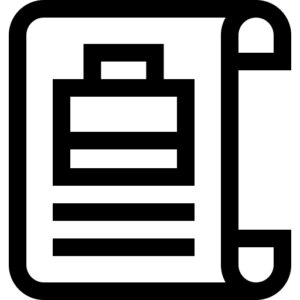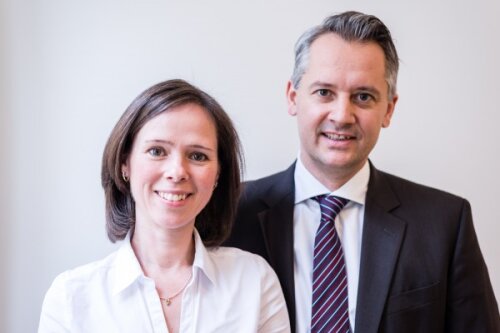Best Probate Lawyers in Miesbach
Share your needs with us, get contacted by law firms.
Free. Takes 2 min.
List of the best lawyers in Miesbach, Germany
About Probate Law in Miesbach, Germany
Probate in Miesbach follows German inheritance law - federal rules set out in the BGB - combined with local court procedures carried out by the local district court - Amtsgericht - that handles Nachlasssachen. Probate is the legal process that determines who inherits the deceased person's assets and who is responsible for the estate's debts. In Germany there is no single mandatory "probate administration" for every estate like in some other countries - many transfers take place by operation of law - but in practice heirs and third parties often need official documents such as an Erbschein or a court appointment of a Testamentsvollstrecker to prove their rights and to deal with banks, land registry, and authorities.
Why You May Need a Lawyer
A lawyer who specialises in inheritance law can protect your interests and speed up practical matters. Common reasons to hire a probate lawyer include:
- Unclear or contested wills - when multiple people claim to be heirs or the validity of a will is disputed.
- Complex estates - when the estate includes real estate, business interests, or international assets.
- Debt and creditor issues - when the estate has outstanding liabilities and you need to assess whether to accept or disclaim the inheritance.
- Pflichtteil (compulsory portion) claims - when close relatives seek a compulsory share that was denied or reduced.
- Estate administration - when heirs need help preparing a Nachlassverzeichnis - inventory of assets and liabilities - or need representation before the Nachlassgericht.
- Tax and cross-border matters - when Erbschaftsteuer or foreign law could apply, or an heir lives abroad.
Local Laws Overview
Key legal points that matter in Miesbach - and throughout Germany - include:
- Will types - Testaments can be handwritten (eigenh�ndiges Testament) or notarial (notarielles Testament). A handwritten will must be personally written, dated, and signed by the testator to be valid. Notarial wills are created by a notary and usually reduce the risk of formal objections.
- Heir certification - An Erbschein issued by the Nachlassgericht proves heirship to third parties. Banks and the Grundbuchamt often ask for an Erbschein or a notarial certificate.
- Acceptance or disclaimer - Heirs can accept or disclaim an inheritance. There is a statutory time window for a formal disclaimer (Ausschlagung). Deadlines and formalities should be observed carefully to avoid unintended acceptance.
- Compulsory share - Close relatives such as children and spouses have a Pflichtteil - a minimum monetary claim - even if excluded from a will. Calculating and enforcing Pflichtteil claims can be legally and factually complex.
- Debt responsibility - Heirs inherit assets and debts. If heirs accept the estate without qualification the estate's liabilities must be paid from inherited assets. Conditional acceptance or formal disclaimer protects personal finances in some situations.
- Notary involvement - Real estate transfers and some testamentary dispositions usually require the notary and registration in the Grundbuch for legal effect.
- Erbschaftsteuer - Inheritance tax is federal. Tax liability depends on the relationship to the deceased, the value of the inheritance, and exemptions. Tax declarations and deadlines must be observed - a tax advisor or lawyer can help make the right declarations and use available exemptions.
- Court procedures - Probate matters are handled by the local Nachlassgericht, usually a chamber of the Amtsgericht. Miesbach residents will work with the local Amtsgericht for certificates, disclaimers, and many estate procedures.
Frequently Asked Questions
What should I do immediately after a relative dies?
Obtain the death certificate from the local registry - Standesamt - and inform close relatives, the deceased's doctor and employer, insurers, banks, and other service providers. Search for any will or testament and secure important documents such as bank papers, property documents, insurance policies and contracts. If there are immediate concerns about property or valuables, take reasonable steps to secure them. Contact a lawyer or notary if you find a will or if the estate looks complex.
How do I find out if there is a valid will?
Check the deceased's home, safe, and personal files for a handwritten or notarised will. Contact the local notary offices where the deceased lived - notarial wills are often held in the notary's custody. If you cannot find a will, the Nachlassgericht can indicate whether a will has been registered with a notary.
What is an Erbschein and when is it needed?
An Erbschein is an official certificate issued by the Nachlassgericht that proves who the legal heirs are and the size of their shares. Banks, land registries and other third parties may ask for an Erbschein to release accounts or change ownership in the Grundbuch. If a notarised testament names an executor or the deceased left a notarial certificate of inheritance, an Erbschein may not be necessary for some transactions.
How long do I have to accept or disclaim an inheritance?
There is a statutory deadline for formally disclaiming an inheritance. You should act promptly once you become aware of the death and your status as an heir. Deadlines may differ depending on your residence and other circumstances. Because missing a deadline can result in automatic acceptance and liability for debts, consult a lawyer or file the formal disclaimer with the Nachlassgericht without delay if you want to refuse the inheritance.
What is the Pflichtteil and who can claim it?
The Pflichtteil is a compulsory monetary share that certain close relatives - typically children and spouses - can claim even if the deceased excluded them from the will. The Pflichtteil is a claim against the heirs for a portion of the estate value, not an entitlement to specific items. Calculating this claim and enforcing it often requires legal and sometimes forensic accounting assistance.
Do I automatically inherit debts as well as assets?
Heirs can be held liable for the deceased's debts. If you accept the estate outright you also accept debts up to the estate's value. To avoid personal liability beyond the estate, heirs can accept the inheritance under the benefit of the inventory - Nachlassverwaltung or execute a formal disclaimer. Legal advice is important if the estate looks insolvent or if creditors are pressing claims.
When is a notary needed?
Notaries are needed for certain formalities - notably for creating or authenticating notarial wills and for real estate transactions that require entry in the Grundbuch. If the estate includes property, a notary will usually be part of the transfer process. Notaries also provide neutral legal advice and can prepare inheritance contracts or carry out testamentary dispositions.
How much will a probate lawyer cost?
Costs depend on the case complexity, the lawyer's experience and the value of the estate. German lawyers usually calculate fees by the Rechtsanwaltsvergütungsgesetz or on an agreed fee basis. Some lawyers offer an initial consultation for a fixed fee. Ask for a clear cost estimate and fee agreement at the first meeting so you know whether the legal support is affordable for your situation.
What if an heir lives abroad or there are foreign assets?
Cross-border situations add complexity - foreign assets may be governed by local laws, and heirs living abroad may face different time limits for disclaimers. International inheritance rules can affect which country's law applies. In these cases consult a lawyer with experience in international inheritance law to coordinate actions in Germany and other jurisdictions and to avoid missed deadlines.
How long does probate take in Germany?
The duration varies widely with the estate's complexity. Simple estates with clear wills and cooperating heirs may be resolved in a few months. Complex estates with property, businesses, disputes, or foreign elements can take many months or years. Prompt document gathering, professional valuations and clear communication among heirs can shorten the process.
Additional Resources
Helpful authorities and professional contacts for probate matters in Miesbach include:
- The local Amtsgericht - Nachlassgericht - for filings such as Erbschein applications and disclaimers.
- The Standesamt for obtaining death certificates.
- Local notaries - for notarised wills, real estate transfers and certified declarations.
- Tax advisors - for Erbschaftsteuer declarations and tax planning related to inheritances.
- Rechtsanwaltskammer regional office - for lists of qualified inheritance lawyers and professional standards.
- Verbraucherzentrale - consumer advisory services often provide basic guidance on inheritance questions and where to get help.
Next Steps
- Collect documents - death certificate, identity documents, last known will, bank statements, property deeds, insurance papers and any funeral or creditor notices.
- Secure assets - lock up property and safe-deposit items, inform banks and insurers that you are dealing with the estate.
- Locate a will - check the deceased's home, safe and any notary offices the person used.
- Consider a lawyer or notary - contact a local inheritance lawyer if there are disputes, significant assets, debts or foreign elements. For straightforward document needs a notary can often assist.
- File necessary declarations - if you decide to disclaim the inheritance, do so within the required formal period at the Nachlassgericht. If you need an Erbschein or have to declare inheritance for tax purposes, act early to meet deadlines.
- Get advice on taxes - consult a tax advisor to understand Erbschaftsteuer consequences and exemptions.
If you are unsure where to start, prepare a short summary of available documents and a list of questions, then contact a local inherited-law specialist for an initial consultation - this will clarify deadlines, likely costs and the most important immediate actions.
Lawzana helps you find the best lawyers and law firms in Miesbach through a curated and pre-screened list of qualified legal professionals. Our platform offers rankings and detailed profiles of attorneys and law firms, allowing you to compare based on practice areas, including Probate, experience, and client feedback.
Each profile includes a description of the firm's areas of practice, client reviews, team members and partners, year of establishment, spoken languages, office locations, contact information, social media presence, and any published articles or resources. Most firms on our platform speak English and are experienced in both local and international legal matters.
Get a quote from top-rated law firms in Miesbach, Germany — quickly, securely, and without unnecessary hassle.
Disclaimer:
The information provided on this page is for general informational purposes only and does not constitute legal advice. While we strive to ensure the accuracy and relevance of the content, legal information may change over time, and interpretations of the law can vary. You should always consult with a qualified legal professional for advice specific to your situation.
We disclaim all liability for actions taken or not taken based on the content of this page. If you believe any information is incorrect or outdated, please contact us, and we will review and update it where appropriate.









